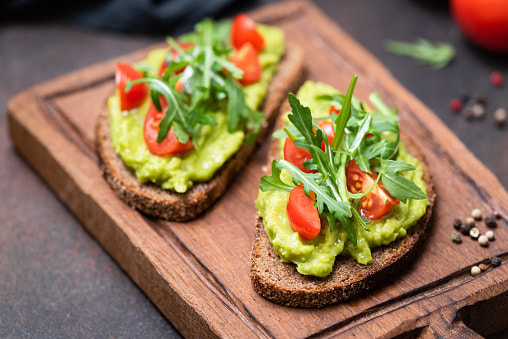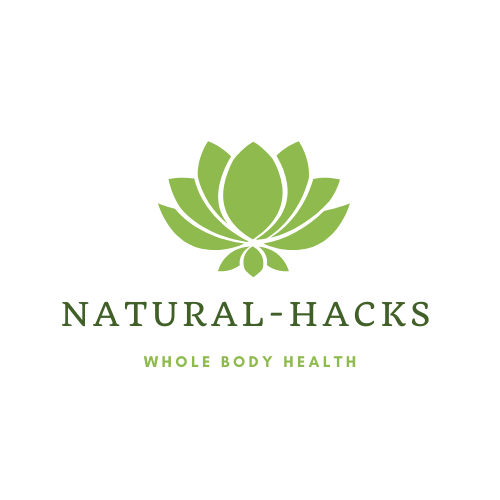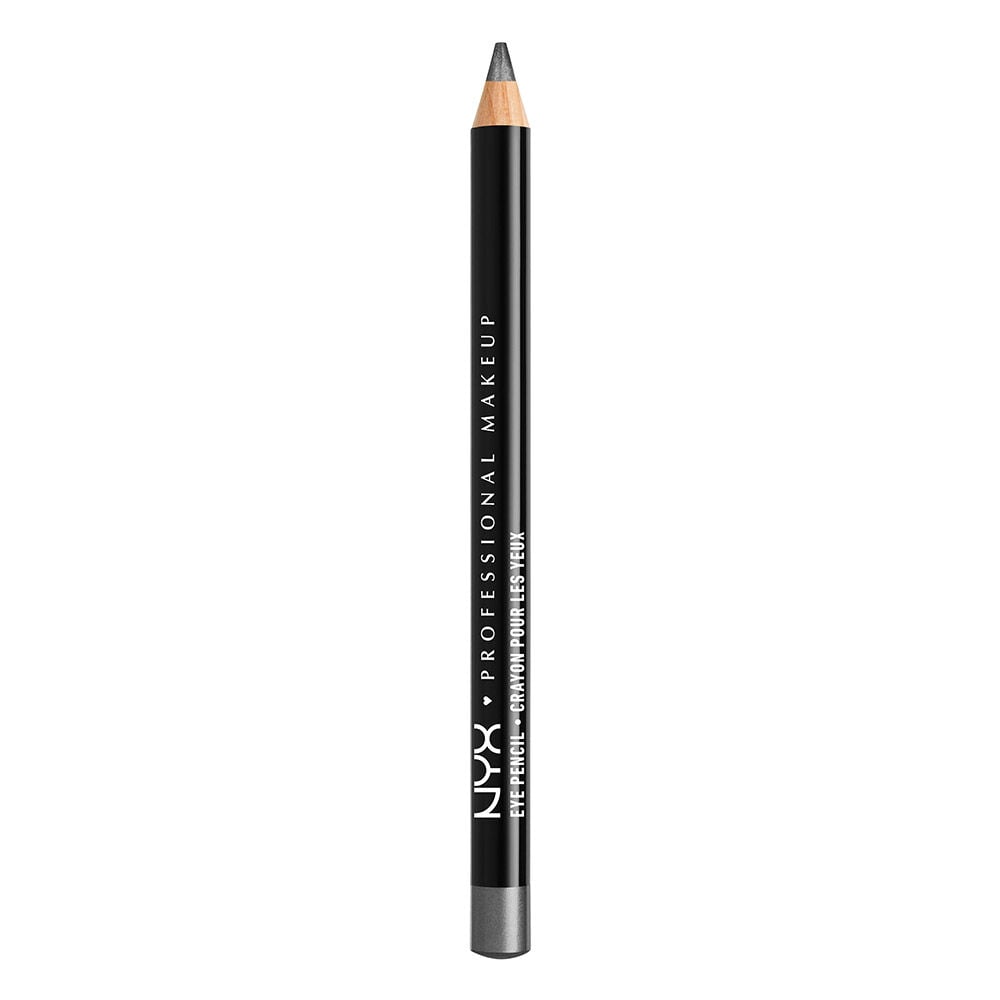Blur spots in your vision? Eat more of these.
One of the most important senses, out of all the five senses we have, is our eyesight. Did you realize that 80% of what we perceive comes through our sense of sight? To reduce the odds of blindness and vision loss, along with cataracts and glaucoma, it's important to stay on top of your eye health. Which is why I wanted to point out these delicious vegetables that can keep your eyes healthy. They are high in zinc, chromium, selenium, copper, magnesium and vitamins A, B, C, D, and E -all of which provide multiple health benefits along with maintaining eye health.
These foods below contain specific nutrients that are especially beneficial to eyesight. Beets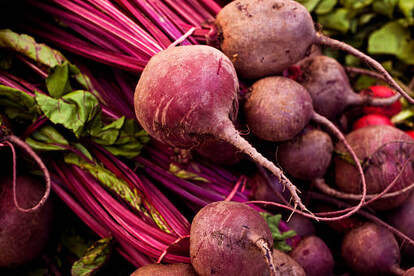
Beet greens are a great source of two carotenoids, lutein and zeaxanthin. Lutein and zeaxanthin are antioxidants located in the eye that help protect eyes from age-related macular degeneration and cataracts. Many studies have shown that lutein and zeaxanthin reduce the risk of chronic eye diseases.
Lutein and zeaxanthin filter harmful high-energy blue wavelengths of light and help protect and maintain healthy cells in the eyes. These are the nutrients that protect you and your loved ones eyes from the harmful effects of screen time. We now live in a world where looking at bright screens continuously throughout the day is the norm and our eyes get exposed to a lot of blue light. Beta-carotene helps reduce the oxidative stress this blue-light puts on our eyes. 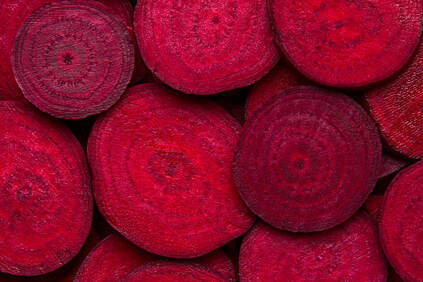
There are 600 carotenoids found in nature and only lutein and zeaxanthin are deposited in high quantities in the retina (macula) of the eye. The macular pigment optical density (MPOD) is how the amount of lutein and zeaxanthin in the macular region of the retina is measured. MPOD is currently being used as a biomarker for predicting visual function and disease.
Antioxidants neutralize free radicals that are associated with oxidative stress and retinal damage. This is how the antioxidants lutein and zeaxanthin can aid in preventing cataracts. In fact, a recent study, and another one here, demonstrated that higher dietary intake of lutein, zeaxanthin and vitamin E was associated with a significantly decreased risk of cataract formation. Dark green vegetables such as spinach, collards and kale also have copious amounts of lutein and zeaxanthin. Carrots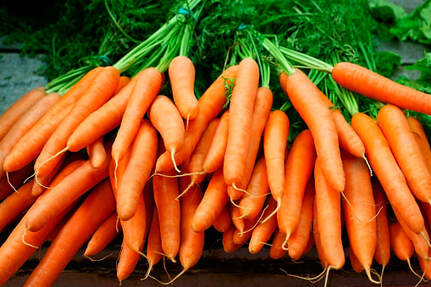
This may be obvious because we all grew up hearing about carrots, but did you ever look into why they are good for eye health? Carrots also have lutein, but they are best known for their ample amounts of beta carotene. Beta carotene is the key source of vitamin A in the human diet. There are two forms of vitamin A available in the foods we eat- preformed vitamin A and provitamin A carotenoids. Preformed vitamin A is found in animal foods, dairy products, supplements and fortified foods. Provitamin A carotenoids are found in plants. When you consume carotenoids, your body converts the pigments into vitamin A.
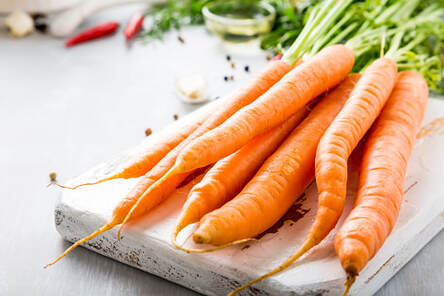
Beta-carotene (provitamin A) keeps the cornea, or protective outer layer of the eye, healthy and moist. Provitamin A allows the eye to see in low-light circumstances by being a constituent of the protein rhodopsin, which is a light-sensitive receptor protein involved in visual phototransduction. According to the American Academy of Ophthalmology, a deficiency in vitamin A can lead to night blindness. Vitamin A is absolutely essential for good vision! It's also wise to point out that preformed vitamin A in high doses can be toxic, so getting your vitamin A via plant sources (beta-carotene) is always best. You can only get beta-carotene from fruits and vegetables, not animal products. To reach toxic levels of preformed vitamin A would require supplementing with synthetic forms. Reaching toxic levels through eating food alone would be highly unlikely. According to the Weston A. Price Foundation: "The putative toxic dose of 100,000 IU per day would be contained in 3 tablespoons of high vitamin cod liver oil, 6 tablespoons of regular cod liver oil, two-and-one-half 100-gram servings of duck liver, about three 100-gram servings of beef liver, seven pounds of butter or 309 egg yolks." Aside from carrots, some great sources of beta-carotene include sweet potatoes, spinach, dark leafy greens, romaine lettuce, squash, cantaloupe and apricots. Avocados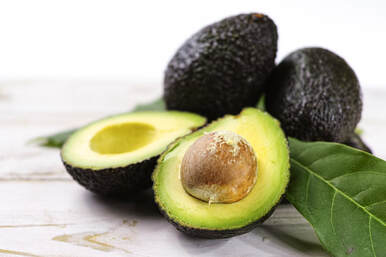
Avocados are also rich in carotenoids lutein and zeaxanthin. They also have plentiful amounts of antioxidant vitamins A and E, as well as minerals like zinc, which all promote overall eye health. Not only does zinc help the body absorb vitamin A, but avocados increase antioxidant absorption from other foods.
Can you imagine how superior it would be, for eye health-among other things, to consume avocado with other vegetables rich in lutein and zeaxanthin? As this study mentions, "Lutein and zeaxanthin are dietary carotenoids that cross the blood brain barrier and exclusively accumulate in the macular region of the retina." And "Thus, the avocado intervention increased MPD by more than double that of the supplement, with only a small fraction of the amount of lutein. This suggests that other components in avocado are particularly effective in the enrichment of neural lutein. The most likely components are monounsaturated fatty acids." These carotenoids go straight to the region of the brain where nerves are that effect eyesight and eye health. They are delivered directly to the eye to provide protection. And with the help of avocado, with it's healthy fats, the absorption rate significantly increases. Cucumbers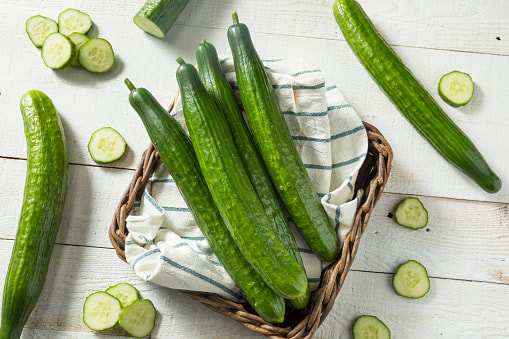
Again, as with the other veggies and fruit mentioned, cucumbers have high amounts of beta-carotene, lutein and zeaxanthin. Just one cup of chopped cucumbers gives you 44 mcg of beta carotene and 22.7 mcg of lutein and zeaxanthin.
Cucumbers also contain Thiamine, riboflavin, Vitamin B, calcium and magnesium. These vitamins and minerals are essential for healthy vision. Vitamins B6, B9 and B12 can lower levels of homocysteine, a protein in your body that may be associated with inflammation and an increased risk of developing AMD. Riboflavin is another B vitamin that has been studied in relation to eye health. It's an antioxidant that has the potential to reduce oxidative stress in your body, including your eyes. In particular, scientists are studying riboflavin’s potential to prevent cataracts. They have found that prolonged riboflavin deficiency may lead to cataracts. 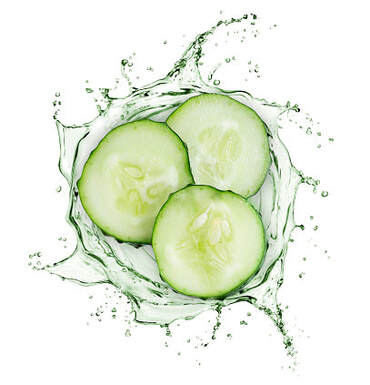
The calcium and magnesium in cucumbers are important for eye health as well. A mineral deficiency will result in a vitamin deficiency, as the minerals are needed for aiding the absorption of vitamins. In fact, a vitamin A deficiency has been noted in people who go blind. Magnesium plays an important role in vitamin absorption and utilization. It directly effects the oxidative stress pathways. As stated in this study here, "In conclusion, Mg is of critical importance in regulating cellular functions of the ocular tissues. The association of Mg levels with the pathogenesis of glaucoma may be attributed to Mg serving highly important roles as a cofactor for several enzymes involving membrane-associated ATPases, modulator of vessel smooth muscle contraction, and regulator in oxidative stress pathways." Most of these nutrients are located in the skin and seeds, so eat it all! Red Peppers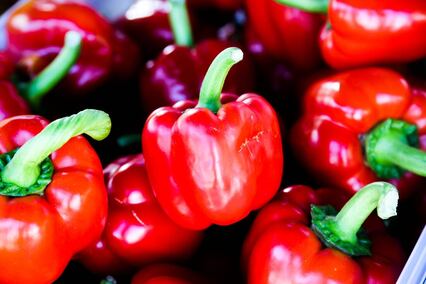
Bright red peppers contain eye-healthy vitamins A and E, along with an abundance of vitamin C which is good for the blood vessels in your eyes. Recent science suggests this high vitamin C could lower your risk of getting cataracts. Eating these vegetables raw is important as heat will break down the vitamin C in the peppers. All cells in the body depend on vitamin C, including those of the eye, where it is concentrated in all tissues. A red bell pepper has nearly 3 times the amount of vitamin C than an orange. This is why adding bell peppers to your diet is even more beneficial for your eyes than oranges. Also, Vitamin C can slow the progression of age-related macular degeneration (AMD) and visual acuity loss, when taken with other essential nutrients. The leading cause of blindness in people over age 55 in the Western world is AMD. The Age-Related Eye Disease Study (AREDS), sponsored by the National Eye Institute, linked AMD and nutrition. The study showed that people at high risk for the disease who took 500 mg/day of vitamin C, along with beta-carotene, vitamin E and zinc supplementation, slowed the progression of advanced AMD by about 25 percent and visual acuity loss by 19 percent.
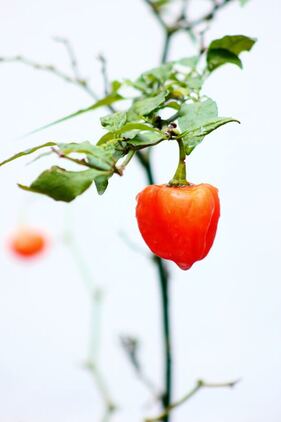
Bell peppers also contain several phytochemicals and beta-carotene. These antioxidants, of course, are essential for eye health. Phytochemicals, as antioxidants and anti-inflammatory agents, may help prevent or delay the progression of chronic eye diseases. As you can see, eye health can be determined by the nutrients you may or may not be consuming. You can help maintain and strengthen your eyesight by adding more of these plant sourced vitamins and minerals to your diet. They are the nutrients needed for optimal eye health. You May Also Like... RSS Feed RSS Feed
|
Archives
February 2023
Archives
February 2023
Categories
All
AuthorKelly Cuip is a registered nutritionist, author, researcher, blogger and mother. |
Natural-Hacks Copyright © 2014-2022
Disclaimer: The information in the articles on this blog are strictly of the opinion of the author. The words and other content provided in this blog, and in any linked materials, are not intended and should not be construed as medical advice, as this blog does not provide diagnosis or treatment. This blog is strictly for educational purposes. Some pages may contain affiliate programs with links.
